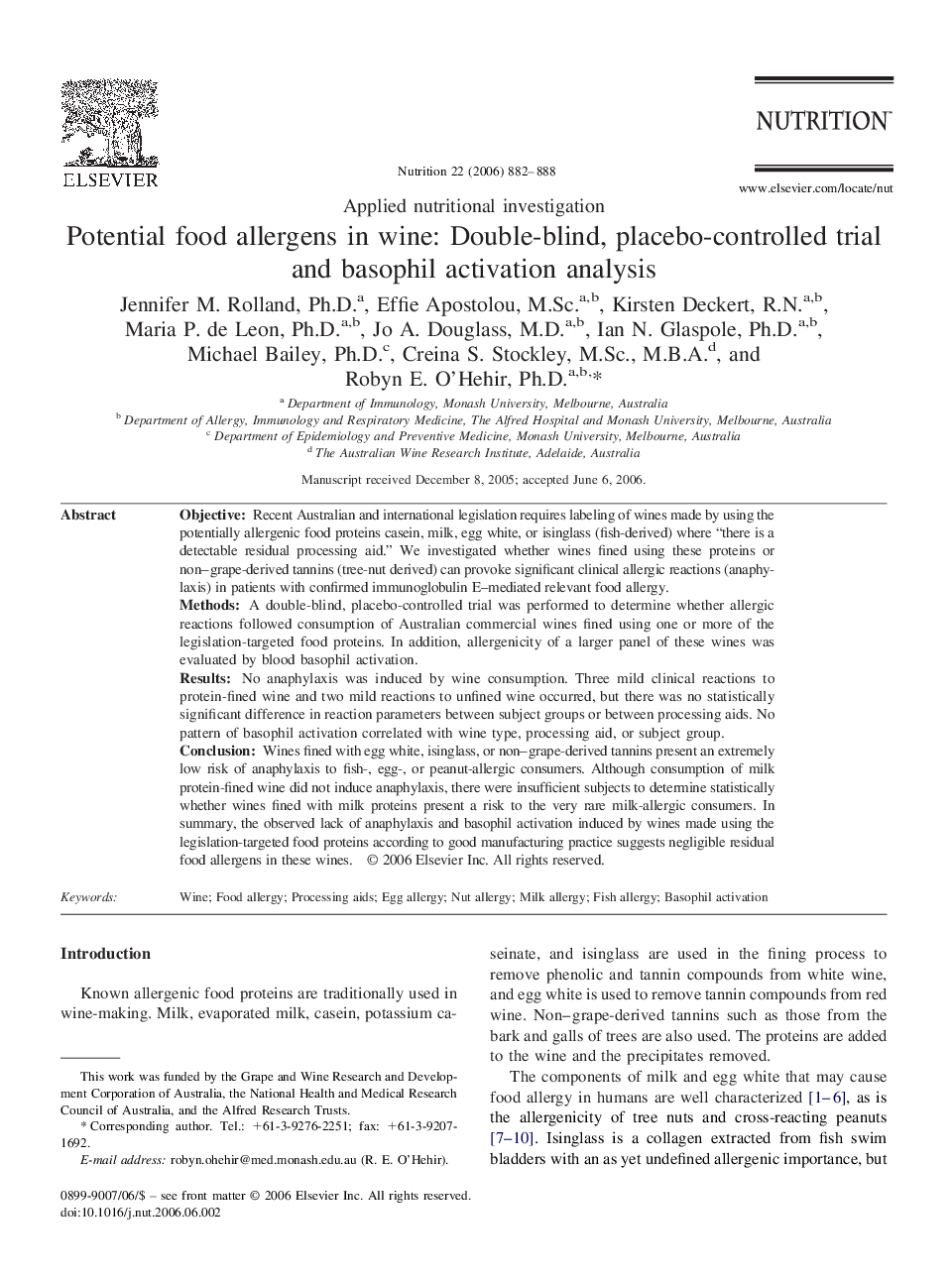| Article ID | Journal | Published Year | Pages | File Type |
|---|---|---|---|---|
| 3277773 | Nutrition | 2006 | 7 Pages |
ObjectiveRecent Australian and international legislation requires labeling of wines made by using the potentially allergenic food proteins casein, milk, egg white, or isinglass (fish-derived) where “there is a detectable residual processing aid.” We investigated whether wines fined using these proteins or non–grape-derived tannins (tree-nut derived) can provoke significant clinical allergic reactions (anaphylaxis) in patients with confirmed immunoglobulin E–mediated relevant food allergy.MethodsA double-blind, placebo-controlled trial was performed to determine whether allergic reactions followed consumption of Australian commercial wines fined using one or more of the legislation-targeted food proteins. In addition, allergenicity of a larger panel of these wines was evaluated by blood basophil activation.ResultsNo anaphylaxis was induced by wine consumption. Three mild clinical reactions to protein-fined wine and two mild reactions to unfined wine occurred, but there was no statistically significant difference in reaction parameters between subject groups or between processing aids. No pattern of basophil activation correlated with wine type, processing aid, or subject group.ConclusionWines fined with egg white, isinglass, or non–grape-derived tannins present an extremely low risk of anaphylaxis to fish-, egg-, or peanut-allergic consumers. Although consumption of milk protein-fined wine did not induce anaphylaxis, there were insufficient subjects to determine statistically whether wines fined with milk proteins present a risk to the very rare milk-allergic consumers. In summary, the observed lack of anaphylaxis and basophil activation induced by wines made using the legislation-targeted food proteins according to good manufacturing practice suggests negligible residual food allergens in these wines.
